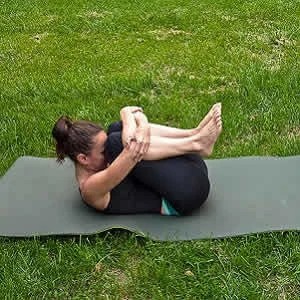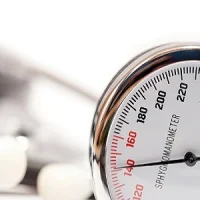A new study shows yoga can reduce blood pressure in patients with prehypertension. Researchers in India, where yoga has been part of traditional culture, assessed the impact of hatha yoga on blood pressure in 60 patients with prehypertension who were otherwise healthy. Their findings were presented at the 68th Annual Conference of the Cardiological Society of India.
See Also: Yoga Reduces Risk of CVD
“Patients with prehypertension (slightly elevated blood pressure) are likely to develop hypertension (high blood pressure) unless they improve their lifestyle,” said lead author Dr. Ashutosh Angrish, a cardiologist at Sir Gangaram Hospital in Delhi, India. “Both prehypertension and high blood pressure increase the risk of heart attack, stroke and heart failure.”
Hypertension is defined as a systolic blood pressure (BP) =140 mmHg and/or diastolic BP =90 mmHg, while prehypertension is a systolic BP 120–139 mmHg or a diastolic BP 80–89 mmHg.
Study participants were randomised to two groups of 30 each to evaluate the effect of three months of yoga plus conventional lifestyle changes versus conventional lifestyle changes alone (control group) on 24 hour ambulatory blood pressure. Yoga included stretching exercises (asanas), breath control (pranayam) and meditation. It was taught by a yoga instructor for one month and then patients subsequently followed it at home. Yoga practice was for one hour every day. Conventional lifestyle changes consisted of moderate aerobic exercise, diet, and smoking cessation.
There were 16 women and 14 men in the yoga group (average age of 56 years), while the control group (average age 52 years) included 17 women and 13 men. The 24 hour mean BP at baseline was 130/80 mmHg in the yoga group and 127/80 mmHg in the control group.
The results showed that, in the yoga group, both 24 hour diastolic BP and night diastolic BP significantly decreased by around 4.5 mmHg and 24 hour mean arterial pressure significantly decreased by nearly 4.9 mmHg.3 The control group did not show any significant change in blood pressure.
“Although the reduction in blood pressure was modest, it could be clinically very meaningful because even a 2 mmHg decrease in diastolic BP has the potential to decrease the risk of coronary heart disease by six percent and the risk of stroke and transient ischaemic attack by 15 percent,” explained Dr. Angrish.
This study suggests that it would be good for patients with prehypertension to practice hatha yoga for one hour daily. Yoga may prevent the development of hypertension and in addition give a sense of well-being, Dr. Angrish said.
Regarding the way yoga may reduce blood pressure, the doctor said: “The exact mechanism is not clear from our study but it has been postulated that yoga may decrease the sympathetic drive, reset the baroreceptors and cause neurohumoral effects. The findings suggest that a combination of all three components of yoga (asanas, pranayam and meditation) is helpful but our study is unable to pinpoint their individual contribution.”
Source: European Society of Cardiology
Image Credit: Wikimedia Commons
Latest Articles
yoga, blood pressure, prehypertension
A new study shows yoga can reduce blood pressure in patients with prehypertension. Researchers in India, where yoga has been part of traditional culture, assessed the impact of hatha yoga on blood pressure in 60 patients with prehypertension who were othe










